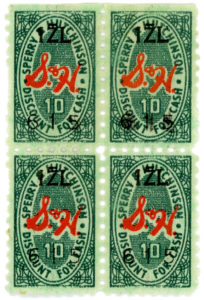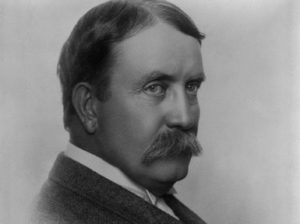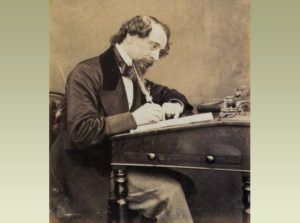For those who haven’t learned how to be two places at once, and thus missed Linda Angér’s talk at the MCC Birthday Bash and Leadership Expo, here is a transcript…
Your feedback is requested – Thanks!
TRANSCRIPT
My name is Linda Anger. I am one of the founding members of MCC, and the founder/president of The Write Concept, a 10-year-old marketing communications company based in Rochester Hills, and I’m here today to speak on the Power of Perseverance.
I can stand here and tell you the platitudes – you’ve heard them a million times. What I really want to share with you is the value of drawing strength from facing the adversity inherent in perseverance. Success, in my book, is not about coming through a challenge unscathed – because adversity isn’t a obstacle to “get around” – it is a part of our life.
I believe things happen FOR us, not TO us… I repeat: things happen FOR us, not TO us. I know that every single thing that has occurred in my life, no matter how positively or negatively I perceived it, happened FOR my ultimate benefit. I hope that 6 minutes from now, you will understand what I mean.
The first story I want to share with you is the tale of Matt Weinstein, a workplace humor and team building expert. Matt was a self-made and quite wealthy man. One day, while cruising Antarctica on a Russian ice-breaking vessel, he got a satellite call from his wife, who said “Bernie Madoff has been arrested. His entire fund was a scam.” In that moment, Matt Weinstein went from a self-made and very wealthy man to a self-made and virtually penniless man. In January 2009, he said “What we came to understand was that Bernie Madoff stole all of our money – but it was up to us to make sure he didn’t steal the rest of our lives.” What an amazing catalyst that experience was FOR Matt Weinstein and his wife. They refused to allow the Madoff madness to happen TO them, and saw the ultimate benefit in their lives. THAT is the basis of Perseverance.
I ask you – when was the last time something you perceived as negative became a blessing in your life?
J.K. Rowling’s first Harry Potter book was rejected by 12 publishers, and even Bloomsbury – the small house that finally purchased the manuscript, told her to get a day job. She was in the midst of a divorce, her mother had just died, and she was living on government subsidies. She ignored the naysayers, kept on writing, and wrote herself into a $15 billion dollar brand.
How much of a deaf ear do you turn to the naysayers in your life?
Greg Mortenson, founder of the Central Asia Institute, and author of the book “Three Cups of Tea,” tells the story of a mullah in Afghanistan who refused to allow education for girls in his village. It took Mortenson 8 years of conversation and thousands of cups of tea before the mullah relented and allowed 1 girl to go to school.
Would you have the patience to stay with an unlikely prospect for eight years? Would you?
We have become a culture addicted to fast food, instant response and gratification, but Mortensen says “Anything truly important is worth doing very, very slowly.”
Who among you feels comfortable in saying you know me fairly well? Would any of you say that I was shy, distant, and most of all, a negative thinker?
I didn’t think so, but I will tell you that for the first 23 years of my life, that was the absolute truth.
At the age of 12, and again at 15, I was subjected to experimental bone surgery that only served to make the perceived problems with my legs worse. For all those years, I was told in many ways – subtle and overt – that I would never be “normal” and shouldn’t bother trying to do any of the things the other kids did without thinking. I was “Different,” and “Different” was not a good thing. For the first 23 years of my life, I believed it and let it rule me. I couldn’t see, at the time, that it was a blessing for me.
Then came the day that a friend challenged the “victim” mentality I was trained to carry. He laid down a challenge I couldn’t refuse – I was determined to show him that he was wrong, that I was physically incapable of doing what he challenged me to do. I surprised myself and did it, and I loved it. That young man’s insistence on getting me out of the psychological straitjacket I wore for so many years changed the course of my life forever. I thank the gods for his persistence – he was the one who taught me to drink deeply of every opportunity, and never substitute “I can’t” for “‘I’m afraid to fail.” It was one of the greatest things that ever happened FOR me.
From the time I started writing stories at 9 years of age, I was told I could never earn a living as a writer. But I have, inside the corporate world for several decades, and as as a small business owner, for over 10 years. That’s Persistence… and trusting that the Universe will always conspire in my favor.
12 years ago, my house burned to the ground. When all you have left is your life, you quickly realize that “stuff” doesn’t matter, and you become far more persistent in pursuing the things that do matter, like – friends, and Wisdom, your capacity to love, your willingness to give of yourself.
For the better part of the last year, I’ve been conquering cancer. Many of you have been with me through this journey – and it is your part in it has made cancer an amazing blessing that happened for me. My gratitude to each of you is boundless.
For those who can’t fathom how cancer could be a blessing, I invite you to contact me and we’ll talk.
My doctor and my chemo nurse tell me they have never seen anyone come through cancer and chemo as cheerfully and uneventfully as I have. I told them what I learned from Aimee Mullens, a parolympian who holds world records in the 100 meter dash, and long jump. She once said, “Opening ourselves to adversity, dancing with it, is natural and useful. No prognosis can be as powerful a determinate as WILL.”
No prognosis can be as powerful a determinate as WILL… and I’ve determined that I am and shall remain a cancer Conqueress.
I ask you: what role does WILL play in your life so far? and, I tell you: no matter how outrageous or scary it seems, when you can see and feel your dream in your minds eye – leap like your pants are on fire!
This amazing universe will surely catch you.
I came here today to talk about the power of perseverance… to honor the unstoppable spirit of Terry Bean in his vision of building the best networking group in Michigan…. he’s succeeded, as this day proves.
And I leave you with this:
Sir Edmund Hillary, the famous explorer, said, “It is not the mountains we conquer… it is ourselves.”
Another wise person said “Ambition is the path to success. Persistence is the vehicle you arrive in.”
And finally, the saying from the Chinese that has been my mantra for many years:
“Those who say a thing cannot be done should not interrupt those who are doing it.”
My name is Linda Anger, from The Write Concept. THANK YOU for your attention.
Now go out there, and make your day magnificent!
 Green Stamps were the first “trading stamp” rewards program offered in America. Wikipedia says that in the 1960s, The Sperry & Hutchinson Company (S&H) issued more stamps than the U.S. Post Office, and they were available everywhere. In those long ago days, there were no credit cards or computerized cash registers, either. How ever did we survive?
Green Stamps were the first “trading stamp” rewards program offered in America. Wikipedia says that in the 1960s, The Sperry & Hutchinson Company (S&H) issued more stamps than the U.S. Post Office, and they were available everywhere. In those long ago days, there were no credit cards or computerized cash registers, either. How ever did we survive?
 Charles Dickens summed it up in 1856, when he stated his sense of the “new technology” of the telegraph (italics and boldface mine):
Charles Dickens summed it up in 1856, when he stated his sense of the “new technology” of the telegraph (italics and boldface mine):